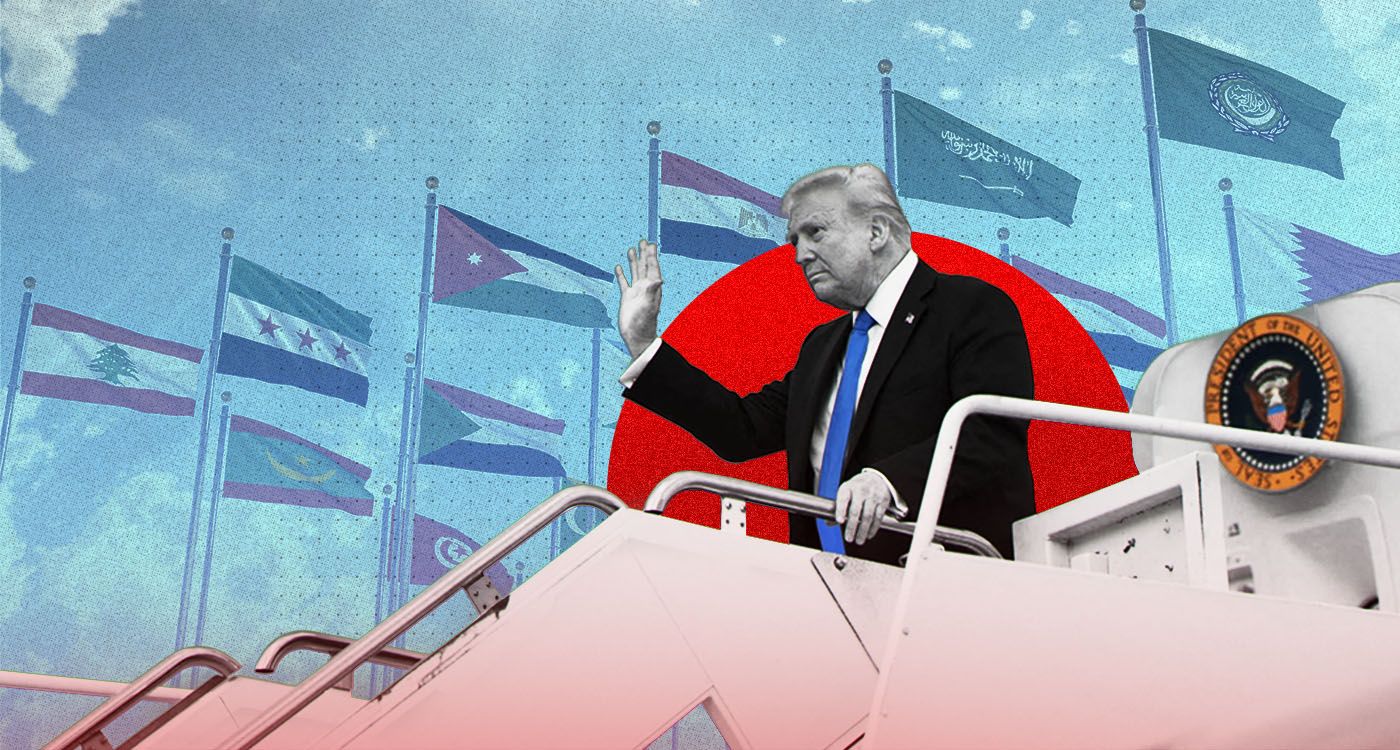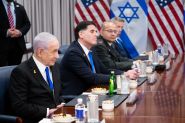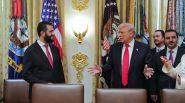- Home
- Middle East
- What Will Donald Trump Do While in the Middle East?

©This is Beirut
It is no surprise that President Trump's first major foreign trip (not counting the late Pope's funeral) since returning to office will be to the Arabian Peninsula. Saudi Arabia was also his first stop in 2017. It is only natural: the center of power in the Arab world rests in Riyadh and Abu Dhabi. And the Saudis, Qataris, and Emiratis are his kind of partners: rich, prepared to pay their own way in the world, and not whiny about his leadership of America. There may not be another globe photo op for Trump's foes to pan, but there will be an announcement of the Qatari gift of a slightly used 747 aircraft as the next Air Force One. It will enable the liberal media to spend the whole week dissecting the ethics of that one, while conservatives praise Trump's fiscal prudence.
What is mildly surprising is the omission of Israel from the president's Middle East itinerary, but Israeli Prime Minister Benjamin Netanyahu has been to the Oval Office twice already this year. Moreover, while there is no public tension between the two leaders, the impression in Washington is that Trump thinks it is past time for the Israelis to wrap up things in Gaza, whatever that means. In any case, bypassing Jerusalem and Ramallah signals what we already know: the Trump team will not spend much time pursuing the Holy Grail of Israeli-Palestinian peace. If anyone is so blunt in Riyadh, Doha or Abu Dhabi as to bring it up, the likely response by Trump will be to lament the tragedy and ask what exactly will the Arabs be doing about it? Trump may well bring in his pocket American sweeteners for a Saudi-Israeli normalization deal, but they won't include promises about movement toward Palestinian statehood. Conventional wisdom is that, unlike before October 7, 2023, the Saudis now need something for the Palestinians as part of any normalization with Israel. The absence of that "something" means there may be no news from this trip on normalization, but no disruption of the positive atmosphere, either.
In all three capitals, Trump is likely to hear encouragement in his drive for a nuclear deal with Iran. Hopefully, he will be attuned to the questions and "yes, buts" he may likely encounter in Riyadh. Karen Elliott House, one of America's best connected and most sophisticated analysts of Saudi-American ties, believes the Saudis are conflicted. They support Trump's aim of dismantling Iran's nuclear program but no doubt worry about the squishiness of an administration that seems to redefine the goals of the negotiation every week. Will Trump adhere to that objective? If so, will the Iranians submit? If not, then what happens? Would the U.S. and Israel join in a military operation? How vulnerable will Saudi Arabia be to an Iranian counterattack? Ms. House thinks these uncertainties mean Crown Prince Muhammad bin Salman is in a box. If a good U.S.-Iran deal seems improbable, then the Saudis see two unpalatable alternatives that pose risks for them: a bad deal which strengthens a hostile Iran or no deal which may lead to military escalation in the region. No wonder MBS sent his brother to meet Ayatollah Khamenei, the first such meeting in a generation. The Saudis are hedging, as Ms. House notes. So, this week will be an opportune moment for the American president to clarify his intentions and red lines with key Arab partners who have so much at stake.
Regional developments and conflicts will no doubt feature as well, including in India-Pakistan. The Saudis and Emiratis have some influence in Pakistan, and Trump may want help to make the fragile ceasefire more durable. They may ask what he had in mind when he talked of settling the Kashmir dispute. American diplomacy long ago bowed to objective reality and Indian sensitivities on that score, but the comment may have piqued interest among Pakistan's Arab friends. Everyone should keep expectations in check.
One useful thing the Saudis might attempt is to place Syria higher on America's regional agenda. The future of that troubled country may well determine the future of the Levant, yet Washington seems to think that the best policy toward Syria is to have no policy at all. The situation demands engagement. Not the grand reception at the Elysee Palace Ahmed al-Sharaa enjoyed recently, but in-the-trenches diplomacy and use of carrots and sticks to test whether El-Chareh will break away from his takfiri roots and allies and genuinely move to the moderate middle. I'm a skeptic, but the stakes are too high not to test the possibility. Yet, America is absent. One can also hope that Arab leaders will advise Trump to condition any deal with Iran on the disarming of proxies such as Hezbollah. Stay tuned for appearances by non-GCC Arab personalities staged by MBS.
An American president's first foray overseas entails a lot of overanalysis. Trump will have established the importance he attaches to relations with the GCC, without any specific outcomes expected, needed or obtained, beyond promises about business deals. The atmosphere will be soothing and friendly, in contrast to his next two foreign trips this summer, a G-7 summit in Canada and with NATO in the Netherlands. The tone at both of those will be combative, and America and its allies will be lecturing each other and showing divergences just when unity in confronting Russia is desired. What a contrast.
Read more




Comments